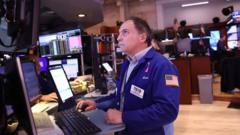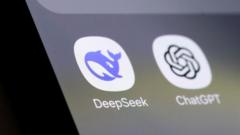As it challenges US dominance, the implications for government oversight and technological freedom loom large.
Chinese Startup DeepSeek: A Game-Changer in AI or a Threat to Party Control?

Chinese Startup DeepSeek: A Game-Changer in AI or a Threat to Party Control?
DeepSeek's rapid rise highlights revolutionary advances in AI, but raises concerns over state control in China.
In 2017, the Chinese tech landscape was rocked when the AI program AlphaGo, developed by Google, bested a local Go prodigy. This event served as a motivator for Chinese officials, galvanizing them to strategize a path towards preeminence in artificial intelligence by the year 2030. They pledged substantial financial support to propel national advancements in this critical field. This ambitious initiative gave birth to DeepSeek, a relatively obscure startup that has surprisingly developed a cutting-edge AI model without relying heavily on state funds, defying experts’ projections on financial demands.
Though DeepSeek operates privately, its emergence is a testament to the broader ambitions of China's leadership under Xi Jinping, who has urged his nation to master pivotal technological arenas like AI, cloud computing, and sustainable energy. Xi envisions revitalizing the Chinese economy beyond its traditional dependence on real estate and exports.
DeepSeek's innovations could signify a shift in global AI capabilities, effectively making sophisticated technologies more affordable and democratizing access across borders. As Xi presents China as a benevolent ally to developing nations, he emphasizes that AI should not remain a resource monopolized by affluent countries.
However, the rise of a disruptive technology like DeepSeek's outputs presents a conundrum for the ruling Communist Party. Will the government be able to maintain its grip on power and regulate a technology that could empower individual users and challenge the status quo? The delicate balance between fostering innovation and safeguarding political control will be crucial as China navigates the implications of its newfound capabilities in artificial intelligence.




















